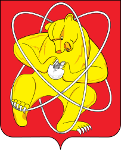|
ChaseSP posted:This might be off subject but is there any good books for learning about the islamic states? If you can read French or Italian I would recommend "Histoire des Berbčres et des dynasties musulmanes de l'Afrique Septentrionale" by W.M. de Slane, "Histoire de l'Afrique du Nord" by C.A Julien , "Storia dei Musulmani di Sicilia" by Michele Amari and "Nuova raccolta di scritture e documenti intorno alla dominazione degli arabi in Sicilia". They are available on Google Books.
|
|
|
|

|
| # ? May 9, 2024 17:01 |
|
Kemper Boyd posted:The history prof I've studied under always made a point to note that if you're lazy and want to be an expert, get into North European medieval history, because you can read all primary sources within a week. So, there's very little stuff from medieval Finland. This is unfortunately really true, though the field is starting to gain some really valuable insights from archeology we'll probably never know as much about the region as we'd like.
|
|
|
|
I had asked this in the ancient history thread but figure it's probably a little better to ask here as well now that I'm caught up. Are there any good podcasts dealing with the early middle ages ala History of Rome for, well, Rome? I know there's History of Byzantium but I was thinking of something more western Europe focused and on the various post-Roman kingdoms that sprung up.
|
|
|
|
Were there ever any descriptions of Post Traumatic Stress Disorder in old writings? There must have been a lot of cases when you have thousands of people dying in these huge battles. How would people even cope with things like that?
|
|
|
|
Blast of Confetti posted:Were there ever any descriptions of Post Traumatic Stress Disorder in old writings? There must have been a lot of cases when you have thousands of people dying in these huge battles. How would people even cope with things like that? Well, there's some research that points out that constant stress and factors of the unknow magnify PTSD more than single incidents. Or is more likely to cause it or whatever. Supposedly this is why we see more PTSD out of WWI trench fighters or 'Nam vets and Iraq vets who are always waiting for that next IED. I dunno if I buy it 100%, but things like hyper-vigilance it sort of make sense not to see in folks who didn't have to deal with asymmetrical war/WWI style constant shelling for weeks. As for examples, I think Ajax is cited as an example a lot. He's a mythical figure but the writers would have been drawing on their own experiences. Herodotus reports a vet at Marathon shutting down and going blind not because he was hurt but because of a near miss. Big Persian dude nearly killed him, stabbed the guy next to him instead. I'm pretty sure some people have pointed to examples in the Arthurian myths as well, but I don't remember.
|
|
|
|
A soldier with PTSD bad enough to affect his daily life probably would not fare well in battles were one on one combat occurred. WWI made it so you could theoretically be the worst soldier ever, never fire a shot, and still endure endless amounts of torturous experiences and get massively hosed up. The dude who loses it on an ancient battlefield gets skewered the next time he faces off with someone, a guy in WWI could be so messed up he can't even walk properly and still survive the war.
|
|
|
|
WoodrowSkillson posted:A soldier with PTSD bad enough to affect his daily life probably would not fare well in battles were one on one combat occurred. WWI made it so you could theoretically be the worst soldier ever, never fire a shot, and still endure endless amounts of torturous experiences and get massively hosed up. I mean, that's PTSD that exhibits on the battlefield. Lotsa people function better out 'in the field' than they do in the transition back to 'normalcy.'
|
|
|
|
Blast of Confetti posted:Were there ever any descriptions of Post Traumatic Stress Disorder in old writings? There must have been a lot of cases when you have thousands of people dying in these huge battles. How would people even cope with things like that? One of the seminal works on PTSD is Achilles in Vietnam by a VA psychiatrist who argues that The Illiad, and the character of Achilles in particular, can be read as a story about combat trauma. It's a really good book by a practicing clinician who's treated a lot of Vietnam vets with PTSD and I recommend it to anyone interested in the subject. There's been descriptions of similar states in early Norse Sagas as well, often in relation to terms like "berzerk" as well as the term "fey," which from Old Norse usually translates to "doomed" and refers to a sort of "transcendent despair" which would come over some people in battle.
|
|
|
|
Blast of Confetti posted:Were there ever any descriptions of Post Traumatic Stress Disorder in old writings? There must have been a lot of cases when you have thousands of people dying in these huge battles. How would people even cope with things like that? The Old Testament stories relating to Joshua tell of a practice, for lack of better words, of keeping soldiers in a sort of "decompression camp" following a battle for a period of time before allowing them to rejoin the civilian population. I don't recall the exact chapter/verse though, it's been some time since I picked up a Bible.
|
|
|
|
WoodrowSkillson posted:A soldier with PTSD bad enough to affect his daily life probably would not fare well in battles were one on one combat occurred. WWI made it so you could theoretically be the worst soldier ever, never fire a shot, and still endure endless amounts of torturous experiences and get massively hosed up. Dunno, many symptoms of PTSD like hyper-alertness, paranoia, emotional numbness, aggression, and violent overractions to triggering stimuli are probably pretty decent survival mechanisms in a combat environment where threats can emerge at any time and you have to act immediately and aggressively to try and head them off. They're just really bad for ordinary life where every corner isn't a potential enemy ambush, and when the stress of being constantly ready to fight without being able to rest takes its toll physically, mentally, and socially. For instance, in Achilles in Vietnam, the author talks about how one of the veterans he's treating was able to respond immediately to a horrific industrial accident in the factory where he worked, even while his coworkers were still sitting there stunned, possibly because of his PTSD altering the way he reacts to shocking and emergency situations. OXBALLS DOT COM fucked around with this message at 03:02 on Nov 21, 2013 |
|
|
|
Outside Dawg posted:The Old Testament stories relating to Joshua tell of a practice, for lack of better words, of keeping soldiers in a sort of "decompression camp" following a battle for a period of time before allowing them to rejoin the civilian population. I don't recall the exact chapter/verse though, it's been some time since I picked up a Bible. There are theories that we saw less problems with soldiers returning to the US in the world wars because they likewise had some "decompression time" while they waited for their trip home, and actually on the ships making the journey. I haven't seen any kind of study on how prevalent incidents were compared to now, and I don't know if they actually exist. I'd be surprised if not, but if that's the case then this whole theory is based on assumption, so there's my caveat.
|
|
|
|
Godholio posted:There are theories that we saw less problems with soldiers returning to the US in the world wars because they likewise had some "decompression time" while they waited for their trip home, and actually on the ships making the journey. I haven't seen any kind of study on how prevalent incidents were compared to now, and I don't know if they actually exist. I'd be surprised if not, but if that's the case then this whole theory is based on assumption, so there's my caveat. Shay originally made a number of suggestions in his book (beyond the obvious stop having wars and supporting the troops (because soldiers serve under significant constraint and coercion)). These were:
So the "decompression" you talk about is in part the first, where unit cohesion and social itneraction helps reduce moral injuries. And then connected to that is the importance of social ritual and cultural acknowledgement of grief, which was far more regimented in older eras with more conservative and regimented societies with specific ways of expressing and dealing with grief through religious and social ritual. As another example, modern racism encourages soldiers in many modern conflicts to view the enemy as subhuman vermin, which has long-standing consequences both culturally but also in the context of PTSD by the moral and psychological injuries and guilt resulting from disrespectful treatment of the enemy dead, as well as the shame of defeat by a subhuman and inferior force. In ancient conflicts, likely this was somewhat less prevalent. OXBALLS DOT COM fucked around with this message at 04:35 on Nov 21, 2013 |
|
|
|
Cream_Filling posted:Dunno, many symptoms of PTSD like hyper-alertness, paranoia, emotional numbness, aggression, and violent overractions to triggering stimuli are probably pretty decent survival mechanisms in a combat environment where threats can emerge at any time and you have to act immediately and aggressively to try and head them off. They're just really bad for ordinary life where every corner isn't a potential enemy ambush, and when the stress of being constantly ready to fight without being able to rest takes its toll physically, mentally, and socially. That makes sense. PTSD as your crisis management ability turned up until the knob breaks.
|
|
|
|
the JJ posted:Well, there's some research that points out that constant stress and factors of the unknow magnify PTSD more than single incidents. Or is more likely to cause it or whatever. Supposedly this is why we see more PTSD out of WWI trench fighters or 'Nam vets and Iraq vets who are always waiting for that next IED. I dunno if I buy it 100%, but things like hyper-vigilance it sort of make sense not to see in folks who didn't have to deal with asymmetrical war/WWI style constant shelling for weeks. This is a good point - the realities of the combat were fundamentally different. Similarly, ancient societies had a more well-defined role for soldiers - they weren't expected to repeatedly transition between the martial and civilian worlds. If you were a member of a warrior caste, it was acceptable to be aggressive and openly find fulfillment in battle - whereas a modern soldier risks social shunning if they admit to killing - much less enjoying it. A medieval knight could live much of his life entirely within the martial perspective, while a modern soldier might go out on a combat patrol during the day and then come back that night and chat with his wife about their kids on Skype. That kind of juggling act engenders a lot more mental stress.
|
|
|
|
WoodrowSkillson posted:A soldier with PTSD bad enough to affect his daily life probably would not fare well in battles were one on one combat occurred. WWI made it so you could theoretically be the worst soldier ever, never fire a shot, and still endure endless amounts of torturous experiences and get massively hosed up. Probably the most famous case of PTSD would be Audie Murphy who clearly fared quite well during battles and almost shut down completely post-war.
|
|
|
|
Cream_Filling posted:One of the seminal works on PTSD is Achilles in Vietnam by a VA psychiatrist who argues that The Illiad, and the character of Achilles in particular, can be read as a story about combat trauma. It's a really good book by a practicing clinician who's treated a lot of Vietnam vets with PTSD and I recommend it to anyone interested in the subject. Huh, thanks for the answers. I'll see if Barnes and Noble has the book next time I go. I've been obsessed with old warriors and PTSD lately for whatever reason.
|
|
|
|
I understand this may be more late-classical era / early Medieval than most of what goes on in this thread, but I'm curious as to how the Vikings were able to develop technology, navigation skills, and the idea of colonization so far ahead of the rest of Europe. I took a couple classes as a history undergrad, but aside from the "they sailed a lot" I never really got an in-depth answer. One of the things I point to is that the Mediterranean cultures had several instances of famous maritime traditions, but despite centuries of experience and advancement, relied heavily on land marks and tended to stick close to shore during their voyages.
|
|
|
|
handbanana125 posted:I understand this may be more late-classical era / early Medieval than most of what goes on in this thread, but I'm curious as to how the Vikings were able to develop technology, navigation skills, and the idea of colonization so far ahead of the rest of Europe. I took a couple classes as a history undergrad, but aside from the "they sailed a lot" I never really got an in-depth answer. One of the things I point to is that the Mediterranean cultures had several instances of famous maritime traditions, but despite centuries of experience and advancement, relied heavily on land marks and tended to stick close to shore during their voyages. The Greeks and Carthaginians were way into colonisation. You just have to like sailing and have a functional military to be able to poo poo out little cities in faraway lands. I don't know how the Vikings actually navigated their way to Newfoundland, but you can be pretty sure it was possible because of their ships. Classical era ships aren't very seaworthy, and crossing the Atlantic is pretty rough. When the look at the Mediterranean, you see a lot of land and opportunity for people to settle. There's really no reason for anybody to wander out the gates of Gibraltar and keep going West, because there is plenty of poo poo to do already. The Carthaginians did some incredible stuff with their trading though. I think they were definitely involved in the tin trade with Britain, and possibly gold and slaves from coastal West Africa. There's also that crazy idea that they managed to reach Brazil, but I don't think there's any evidence for that one.
|
|
|
|
Suben posted:I had asked this in the ancient history thread but figure it's probably a little better to ask here as well now that I'm caught up. Are there any good podcasts dealing with the early middle ages ala History of Rome for, well, Rome? I know there's History of Byzantium but I was thinking of something more western Europe focused and on the various post-Roman kingdoms that sprung up. I followed up listening to the History of Rome by reading Tom Holland's The Forge of Christendom. If I recall correctly, it starts right around the Merovingian Dynasty and continues until about 1100 AD, covering pretty much the entirety of late antiquity for Western Europe. It's a pretty solid read, and I've followed up by reading his other books, Rubicon and Shadow of the Sword(in progress). As far as podcasts go, Dan Carlin's Hardcore History has en episode called Thor's Angels that covers some of what you're looking for. It's a good one.
|
|
|
|
Slim Jim Pickens posted:The Greeks and Carthaginians were way into colonisation. You just have to like sailing and have a functional military to be able to poo poo out little cities in faraway lands. Thanks! Though I meant that the Vikings were the sole colonist group in their era, I knew that Greece, Rome, etc all had their little satellites, the classical age was pretty fascinating with all of the major empires experimenting with power projection and what not. I found a book at a store called "Dark Age Naval Power", would this be worth getting? As someone with a background in history, what are some good books that go into this sort of thing, outside of the Sagas/Eddas/Beowulf?
|
|
|
|
I recently read a paper saying that people in the early Renaissance died in large number from typhus and tuberculosis Is this true for the Middle Ages? What non-plague diseases were common?
|
|
|
|
handbanana125 posted:I understand this may be more late-classical era / early Medieval than most of what goes on in this thread, but I'm curious as to how the Vikings were able to develop technology, navigation skills, and the idea of colonization so far ahead of the rest of Europe. I took a couple classes as a history undergrad, but aside from the "they sailed a lot" I never really got an in-depth answer. One of the things I point to is that the Mediterranean cultures had several instances of famous maritime traditions, but despite centuries of experience and advancement, relied heavily on land marks and tended to stick close to shore during their voyages. Vikings (I'm using the word to mean medieval and earlier era Scandinavians) lived on the coasts and fished a lot. Their famous longships are basically fishing boats that been upgraded generation after generation. The Wikipedia article is quite good at explaining it in depth. The reason that Vikings became so good at navigation and sailing is basically "they sailed a lot". They knew about the latitudes. My guess is that the length of Norway is the reason that they found out about them. People living in the west coast of Norway kept in touch with other colonies on the west coast only with ships. The colonies were sparsely distributed and their ships were fast. So maybe some of the sailors realized that some object's shadow was of different length the more northern they went. Vikings used the latitudes to sail east-west directions. They could easily sail to Britain, Iceland, Greenland and Vinland by using them. Finding new lands was harder, and Vikings found new lands only by accident or by learning from others. The ancient Mediterraneans could navigate on open sea quite well. Slim Jim Pickens posted:The Greeks and Carthaginians were way into colonisation. You just have to like sailing and have a functional military to be able to poo poo out little cities in faraway lands. Vikings found Newfoundland probably because a ship was blown away by storm. After that, it was easy for them to find a way back, because they knew about the latitudes. Of course, sailing there wasn't that easy, because their ships while good at rowing quickly on good weather, weren't that good at open sea travel. Not even their merchant ships. Classical era merchant ships were more seaworthy. Roman grain ships were even more seaworthy than the ships Magellan's fleet used to sail around the world. Carthagians (a Phoenician colony) could have accidentally sailed to Brazil. There's just not any evidence about it. In fact it's easier to sail from Carthage to Brazil, than from Roskilde to Newfoundland. Phoenicians traded in western Africa, and only thing needed for them to find Brazil was one storm. And to survive back home. There is even some literary evidence that Phoenicians sailed around the Africa.  Prevailing winds.  Clipper route. The most efficient sailing route.
|
|
|
|
Hogge Wild posted:There is even some literary evidence that Phoenicians sailed around the Africa. Whoa, what texts?
|
|
|
|
poisonpill posted:Whoa, what texts? [quote="The History of Herodotus Book IV Written 440 B.C.E Translated by George Rawlinson"] For my part I am astonished that men should ever have divided Libya, Asia, and Europe as they have, for they are exceedingly unequal. Europe extends the entire length of the other two, and for breadth will not even (as I think) bear to be compared to them. As for Libya, we know it to be washed on all sides by the sea, except where it is attached to Asia. This discovery was first made by Necos, the Egyptian king, who on desisting from the canal which he had begun between the Nile and the Arabian gulf, sent to sea a number of ships manned by Phoenicians, with orders to make for the Pillars of Hercules, and return to Egypt through them, and by the Mediterranean. The Phoenicians took their departure from Egypt by way of the Erythraean sea, and so sailed into the southern ocean. When autumn came, they went ashore, wherever they might happen to be, and having sown a tract of land with corn, waited until the grain was fit to cut. Having reaped it, they again set sail; and thus it came to pass that two whole years went by, and it was not till the third year that they doubled the Pillars of Hercules, and made good their voyage home. On their return, they declared- I for my part do not believe them, but perhaps others may- that in sailing round Libya they had the sun upon their right hand. In this way was the extent of Libya first discovered. [/quote] From here: http://classics.mit.edu/Herodotus/history.4.iv.html. It was also done with a replica: http://www.sail-world.com/Cruising/international/Phoenicia-proves-the-skeptics-wrong-by-circumnavigating-Africa/75982 It's by Herodotus, so take it with a grain of salt.  By Kate Beaton. Hogge Wild fucked around with this message at 23:37 on Nov 21, 2013 |
|
|
|
Hogge Wild posted:From here: http://classics.mit.edu/Herodotus/history.4.iv.html. That aspect is a story which is typically considered to be real, no salt needed.
|
|
|
|
Welp, there goes my weekend.
|
|
|
|
Can anyone tell me or point me to online resources about medieval practices surrounding childbirth and recovery for the mother? Preliminary googling points to periods of confinement for new mothers- how would they return to society, for poorer women how and when would they return to work, etc? Cheers.
|
|
|
|
Hogge Wild posted:From here: http://classics.mit.edu/Herodotus/history.4.iv.html. Libya means all of Africa right? Here's the gallery of the replica ship being built. Crazy bastards went super authentic and edge-joined it just like in the old days.
|
|
|
|
oXDemosthenesXo posted:Libya means all of Africa right? Libya refers to all of North Africa past the Egyptian coast. They didn't know how far south the whole thing went so they assumed Libya was most of it.
|
|
|
|
Rodrigo Diaz posted:Honestly, I know most about the period of the "Mongol Yoke", because it's when Kulikovo happens (which loving RULES) and I was quite enthralled by the Zadonshchina in high school. However, with my comparatively limited knowledge I can tell you that there was a central problem to any attempt at Rus' reunification, which was the system of inheritance which did not allow the accumulation of complete territories amongst sons. While in its own microcosm this is arguably the fairest and most equitable way to do things, when faced with a foreign power like the Tatars it results in a lot of small, squabbling principalities who can never rally their forces. Not that I believe Rus' would have been able to defeat Subutai at that point, but that's another argument. That was a great reply, thanks! As a follow up question, how aware were the Rus of the Mongols before the Kalka River and what were their attitudes afterwards until ~1250, given that they lost so many men and nobles and the Mongols just vanished east again? Also what happened to the Cumans? I seem to remember a lot of Cuman refugees settling in Eastern Hungary (where Friar Julian later departed), but would love some specifics. Also what's the deal with Lithuania? What were some of the factors that allowed a comparable backwater heathen state to become one of the strongest, or at least largest powers in Europe for a time? Was it also Mongol-related due to the destruction around them elevating them relatively speaking or were there other factors?
|
|
|
|
ButtHate posted:Also what's the deal with Lithuania? What were some of the factors that allowed a comparable backwater heathen state to become one of the strongest, or at least largest powers in Europe for a time? Was it also Mongol-related due to the destruction around them elevating them relatively speaking or were there other factors? As far as I know a combination of very good political use of religion (promising conversion from paganism or threatening to convert to Orthodoxy instead was used by more than 1 monarch to get concessions via the Pope) and not getting crushed by the Mongols and being one of the few states able to fill the power vacuum. Perhaps somewhat ironically the unification of the various Baltic tribes around Lithuania was catalysed by the crusades against them by the Livonian Order which lead to the formation of a powerful mostly pagan and Orthodox state (though they did convert to Catholicism for good eventually).
|
|
|
|
Yeah, and then they completely wrecked the Livonians at Schaulen. Start a Crusade on me will you? I'll kick your rear end so bad you have to get folded into the Templars and aren't even a real Order anymore. gently caress yeah.
|
|
|
|
Xiahou Dun posted:Yeah, and then they completely wrecked the Livonians at Schaulen.  They're all over Austria. I went to their main church in Vienna once. They're all over Austria. I went to their main church in Vienna once.
|
|
|
|
Which one is it?
|
|
|
|
InspectorBloor posted:Which one is it? http://en.wikipedia.org/wiki/Church_of_the_Teutonic_Order,_Vienna HEY GUNS fucked around with this message at 21:42 on Nov 23, 2013 |
|
|
|
a travelling HEGEL posted:
Yeah, but they used to be a fully independent order before Schaulen. After that they became a semi-autonomous sect of the Templars instead of their own thing. Yes, I'm being slightly pedantic.
|
|
|
|
a travelling HEGEL posted:St. Elizabeth's. It's in the plaza, round the corner from St. Stephen's. Wow, weird. I've never noticed it.
|
|
|
|
Xiahou Dun posted:Yeah, but they used to be a fully independent order before Schaulen. After that they became a semi-autonomous sect of the Templars instead of their own thing. Yes, I'm being slightly pedantic. What? No they didn't. I think you mean the Teutonic Knights, who are different and infinitely worse.  death to fritz death to fritz
|
|
|
|
Rodrigo Diaz posted:What? No they didn't. Wait...I meant the Teutonic Knights. What did you guys mean?
|
|
|
|

|
| # ? May 9, 2024 17:01 |
|
a travelling HEGEL posted:Wait...I meant the Teutonic Knights. What did you guys mean? read the post I quoted. or did you mean "who got folded into another order?" that's the Sword Brothers of Livonia, who aren't really a monastic crusading order like all the others.
|
|
|



























